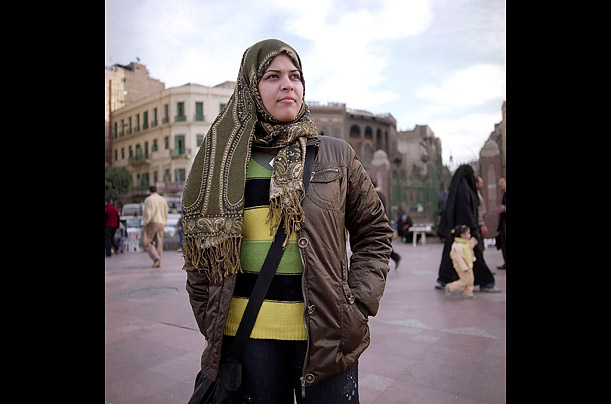
While the protest in Tahrir Square enters its eleventh day with the aim of bringing about an end to military rule, thousands of Egyptians are engaged in a parallel democratic exercise: voting in Egypt’s first post-revolutionary elections. Today, Egypt is writing an important line in its history, as the Egyptian people proudly decide their own political destiny for the first time in their seven thousand years of history. I cannot stop thinking about how this parliamentary election may change the future of Egypt for the better or – God forbid – for worse. It all depends on the actions of Egyptian voters over the next 48 hours.
One can hardly predict the results of the first parliamentary elections since the historic nonviolent revolution that has changed the lives and attitudes of the Egyptian people forever. It is equally difficult to estimate the real influence of the current protests on the attitudes of voters. At the same time, it is clear that these elections will have extraordinary significance for Egypt’s political landscape, drawing a new map of the power centers and interest groups that will dominate the domestic political scene for the forseeable future and could also transform political dynamics across the Middle East region as a whole.
As a candidate for the People’s Assembly, I am running for the Downtown Cairo district on the list of Eladl (Justice) Party. Eladl is a party recently founded by young revolutionaries who decided to build on the success achieved with Mubarak’s overthrow by transferring the spirit of activism to the political decision-making arena. I joined Eladl Party as a founding member and director of its women’s organization in April. At that time, the decision to run for elections was not on my wish list because I did not meet the minimum age requirement for candidates (30 years old). In July, however, the SCAF issued a new regulation that decreased the minimum age for eligible parliamentary candidates to 25 years old. At that point, my party leaders and I started to think about the possibility of moving me from the realm of civil society to formal politics.
The decision to run for parliament was not an easy one for me as a human rights activist, a young revolutionary and above all a young woman who lives in a society that hardly accepts women in leadership positions. Entering the world of politics was not an easy decision, neither for me nor for other young candidates with backgrounds in civil society activism. Stepping out of the role of monitoring and evaluating the performance of public officials and decision-makers to become a decision-maker oneself requires as much courage as our grandparents had in crossing the Red Sea behind Moses – a leap that only true believers can make. Those who decided to run and those who will vote at the polls tomorrow are true believers in democracy who represent the glorious future of Egypt and will help this country move beyond its painful legacy of authoritarianism. These parliamentary elections are as valuable and necessary as the revolution itself.
Although there are certainly plenty of dirty games being played in the world of politicians, the best thing about electoral campaigning is that it allows you to intimately communicate with fellow citizens whom you might not have the opportunity to meet under ordinary circumstances.
Of course, not all interpersonal interactions on the campaign trail have been positive ones. Over the course of my campaign, I have had to deal with death threats sent to my cell phone and filthy attempts by my rivals to distort my image by spreading false rumors about me, claiming that I am not patriotic enough because I work for an American non-governmental organization that I am not a devout Muslim because I encourage women to stand up for their rights, and because I am passionate about creating understanding and dialogue between the West and the Muslim world.
While campaigning has not always been easy, the experience has come with many positive results. Interacting directly with voters has brought me satisfaction and personal growth, as well as the confidence to be an effective leader. Although I have had years of experience working with grassroots networks as an NGO professional, I was always in the position of being a provider or a teacher. Now through my election campaign, I have found myself in a student’s role, learning from the many people I encountered who did not hesitate to share with me the minute details of their lives and encouraged me to speak my mind and overcome my fears. Each one has a unique story and creative ideas that inspired me to change from within.
One of the greatest lessons I have learned from my voters is that winning a parliamentary seat is not as important as winning the hearts and minds of your own people.
Dalia Ziada is competing in the November 2011 parliamentary elections as a candidate for the Eladl Party, a new party founded by young revolutionaries to affirm a moderate Egyptian religious and political ideology.
Photo Credit: Olivia Arthur, Time Magazine
Image: daliaziada.jpg
